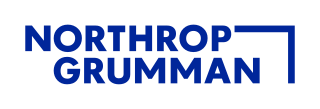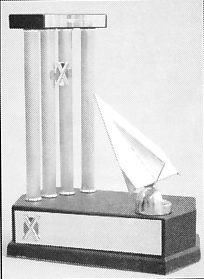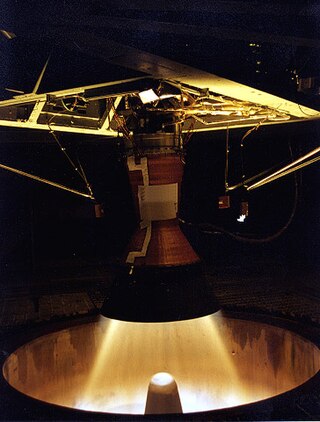
Rockwell International was a major American manufacturing conglomerate involved in aircraft, the space industry, defense and commercial electronics, components in the automotive industry, printing presses, avionics and industrial products. Rockwell International's predecessor was Rockwell Manufacturing Company, founded in 1919 by Willard Rockwell. In 1968, Rockwell Manufacturing Company included 7 operating divisions manufacturing industrial valves, German 2-cycle motors, power tools, gas and water meters. In 1973, it was combined with the aerospace products and renamed Rockwell International. At its peak, Rockwell International was No. 27 on the Fortune 500 list, with assets of over $8 billion, sales of $27 billion and 115,000 employees.

An aerospace manufacturer is a company or individual involved in the various aspects of designing, building, testing, selling, and maintaining aircraft, aircraft parts, missiles, rockets, or spacecraft. Aerospace is a high technology industry.

Aerospace is a term used to collectively refer to the atmosphere and outer space. Aerospace activity is very diverse, with a multitude of commercial, industrial and military applications. Aerospace engineering consists of aeronautics and astronautics. Aerospace organizations research, design, manufacture, operate, or maintain both aircraft and spacecraft.

Northrop Grumman Corporation is an American multinational aerospace and defense technology company. With 90,000 employees and an annual revenue in excess of $30 billion, it is one of the world's largest weapons manufacturers and military technology providers. The firm ranks No. 101 on the 2022 Fortune 500 list of America's largest corporations.

The Robert J. Collier Trophy is an annual aviation award administered by the U.S. National Aeronautic Association (NAA), presented to those who have made "the greatest achievement in aeronautics or astronautics in America, with respect to improving the performance, efficiency, and safety of air or space vehicles, the value of which has been thoroughly demonstrated by actual use during the preceding year."

Alliant Techsystems Inc. (ATK) was an American aerospace, defense, and sporting goods company with its headquarters in Arlington County, Virginia, in the United States. The company operated in 22 states, Puerto Rico, and other countries. ATK's revenue in the 2014 fiscal year was about US$4.78 billion.
United Technologies Corporation (UTC) was an American multinational conglomerate headquartered in Farmington, Connecticut. It researched, developed, and manufactured products in numerous areas, including aircraft engines, aerospace systems, HVAC, elevators and escalators, fire and security, building automation, and industrial products, among others. UTC was also a large military contractor, getting about 10% of its revenue from the U.S. government. Gregory J. Hayes was the CEO and chairman.
Teledyne Technologies Incorporated is an American industrial conglomerate. It was founded in 1960, as Teledyne, Inc., by Henry Singleton and George Kozmetsky.

The Iven C. Kincheloe Award recognizes outstanding professional accomplishment in the conduct of flight testing. It was established in 1958 by the Society of Experimental Test Pilots in memory of test pilot and Korean War ace Iven C. Kincheloe, United States Air Force, who died during flight testing.
Thiokol was an American corporation concerned initially with rubber and related chemicals, and later with rocket and missile propulsion systems. Its name is a portmanteau of the Greek words for sulfur and glue, an allusion to the company's initial product, Thiokol polymer.

The Coalition for Deep Space Exploration is a United States space advocacy organization for space industry businesses and non-profit groups supporting continued government investment in space exploration.

United Space Alliance (USA) was a spaceflight operations company. USA was a joint venture which was established in August 1995 as a Limited Liability Company (LLC), equally owned by Rockwell International and Lockheed Martin. The sale of Rockwell's aerospace and defense assets, including the Rockwell Space Operations Company (RSOC) and the Space Transportation System Operations Contract (STSOC) to Boeing in December 1996 made Boeing the co-owner along with Lockheed for the rest of the company's corporate existence. The company was headquartered in Houston, Texas and in 2008 employed approximately 8,800 people in Texas, Florida, Alabama, and the Washington, D.C. area. In 2014, the company was in the process of dissolving. The company was finally dissolved on 20 December 2019.
Nadcap is a global cooperative accreditation program for aerospace engineering, defense and related industries.

Athena was a 1990s Lockheed Martin expendable launch system which underwent several name changes in its lifetime.

A rocket engine test facility is a location where rocket engines may be tested on the ground, under controlled conditions. A ground test program is generally required before the engine is certified for flight. Ground testing is very inexpensive in comparison to the cost of risking an entire mission or the lives of a flight crew.

Commercial Resupply Services (CRS) are a series of flights awarded by NASA for the delivery of cargo and supplies to the International Space Station (ISS) on commercially operated spacecraft. The first CRS contracts were signed in 2008 and awarded $1.6 billion to SpaceX for twelve cargo Dragon and $1.9 billion to Orbital Sciences for eight Cygnus flights, covering deliveries to 2016. The Falcon 9 and Antares rockets were also developed under the CRS program to deliver cargo spacecraft to the ISS.

Swales Aerospace was an employee-owned, small business aerospace engineering firm. The company offered a full range of aerospace engineering services. It was the global leader in the development and manufacture of two-phase thermal solutions for spaceflight applications, and it was a small satellite mission provider. In 2007, it was acquired by Alliant Techsystems.

The T-X program is a United States Air Force development and acquisition program for a new two-seat jet trainer to replace the Northrop T-38 Talon. On 27 September 2018, the US Air Force selected the Boeing/Saab T-X entry to become its trainer aircraft. The new aircraft was given the designation and name "T-7 Red Hawk" in September 2019. The Air Force's initial plan is to purchase 351 T-7s, and has an option to purchase up to 475.
Raytheon Technologies Corporation is an American multinational aerospace and defense conglomerate headquartered in Arlington, Virginia; it is one of the largest aerospace and defense manufacturers in the world by revenue and market capitalization as well as one of the largest providers of intelligence services. Raytheon Technologies manufactures aircraft engines, avionics, aerostructures, cybersecurity, guided missiles, air defense systems, satellites, and drones. The company is also a large military contractor, getting a significant portion of its revenue from the U.S. government.














